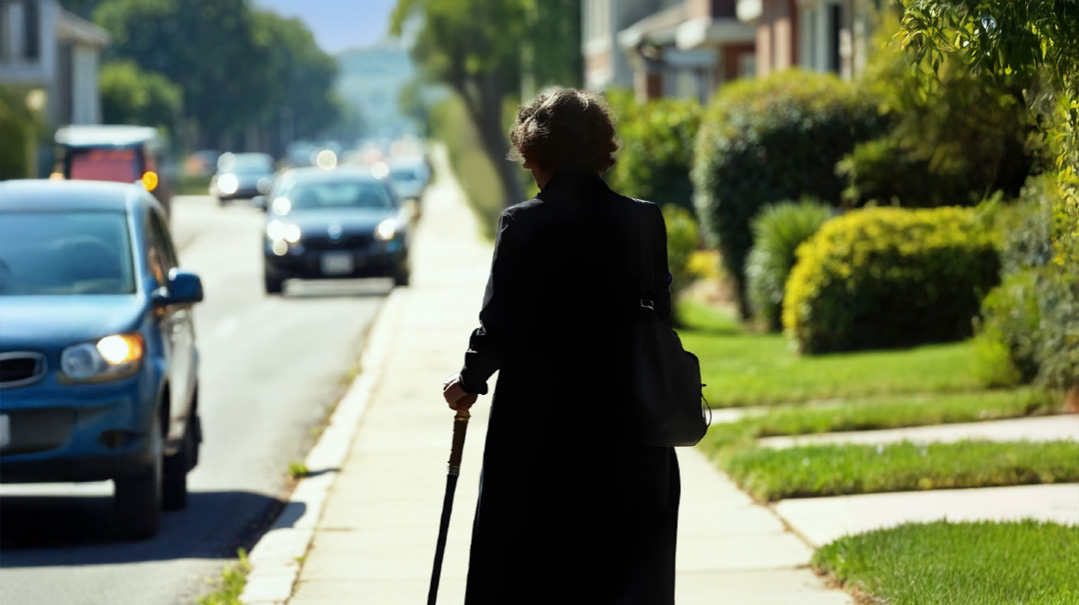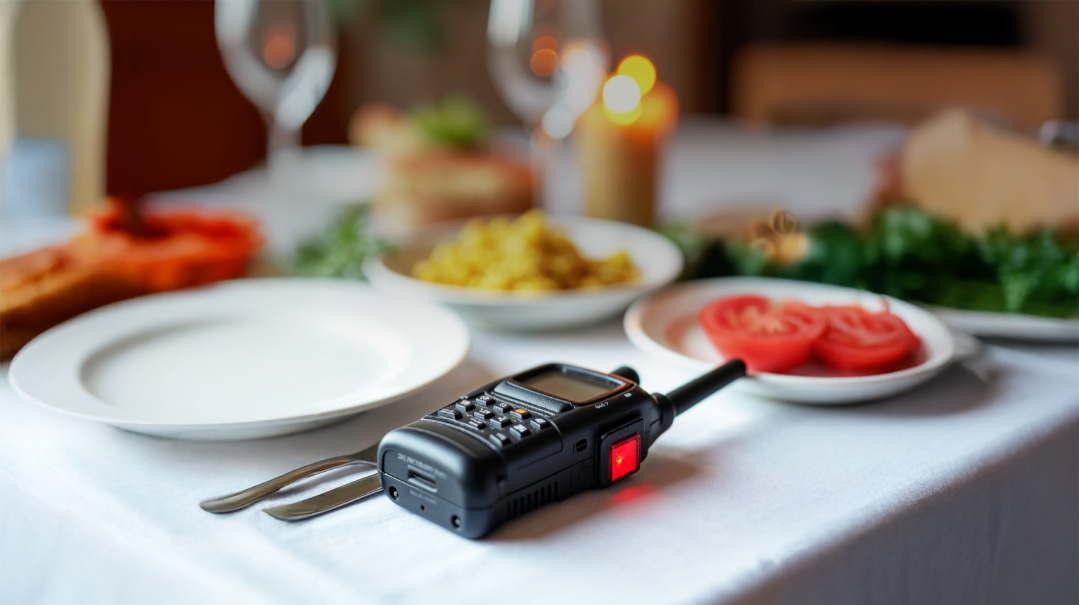Super Bubby
| October 13, 2024There is something so simultaneously degrading and devastating about being patronized by a fourteen-year-old

Sorry, Bubby, I have play practice that night.
Tomorrow isn’t going to work for me, but we can go out another time for sure!
Oh, I don’t go out to eat anymore. It’s sooo unhealthy, you know?
*
It’s almost like Perela’s granddaughters don’t like her anymore. Or — maybe even worse — they’ve decided she’s boring.
Perela loves her grandkids. She really, really does. When she first met Avigail, blue-eyed and tiny and delicate, she had cradled her for hours, had taken her through rough nights and afternoon breaks. Sara and Devora were the same. And for over a decade, she was their favorite person, the Bubby they jostled each other to reach, the grandmother they all begged to have sleepovers with.
There was a time when Devora wouldn’t even eat unless it had been Perela feeding her. For her fifth birthday present, Avigail had just asked to spend Shabbos with Bubby. There are more grandchildren now, of course, beautiful babies growing into beautiful children whom she loves very much, but there will always been something special about the oldest three local granddaughters, a connection that will never change.
Or so she’d thought. She sighs, picking her phone up again as she heads home from work. She has a cane now after her hip surgery last spring, and it’s a bit of a challenge to balance the phone against her ear and walk, so she stands still under a shady tree on the street as she calls her oldest daughter.
“I think your daughters are outgrowing me,” she says, her voice a little plaintive.
“Avigail and Devora?” Mira laughs. But she sounds strained, like she knows exactly what Perela means. “They love you. You’ll always be their Bubby.”
“Mira,” Perela says, discarding niceties. “You know what I mean. The two of them — and Sara — have been finding every reason to avoid me lately. Did I do something?”
“No, of course not.” A sigh. Then, a concession. “It’s just… you know how teenagers are. They love you, but they’re just not going to connect in the same way as they did when they were cuddly babies. They barely talk to me sometimes,” Mira adds, as though it’s reassurance. “You just have to wait them out. Once they hit adulthood, they’ll stop thinking that hanging out with your grandmother is uncool. They’ll be right back in your house every afternoon.”
No, they’ll get married and move away, Perela thinks morosely, but she doesn’t say it aloud. There’s only so much whining that Mira can take from her mother. Perela won’t even try to call Sara’s mother, who is too no-nonsense to even entertain her insecurities.
When had it started being Perela who called her daughters for advice instead of the other way around?
Well. That said, Perela is still very fulfilled and has a perfectly wonderful life, teenagers or not. She can mourn how uncool she is once she gets home.
She leans a little more heavily on her cane as she keeps walking. There’s a reporter filming an afternoon story on the sidewalk in front of her, and she moves to the side to avoid the cameras. That’s all she needs — to be seen hobbling down the street in the background of some news story like an old lady. Avigail will never look at her the same way again.
Her eyes alight on a teenager walking down the busy street, holding the hand of a younger sister with a bright pink shirt. The girl drifts into the street and back onto the sidewalk, playing a game where she balances on the curb, and her brother tugs her along impatiently. The boy isn’t even Jewish, but the sight of them still makes Perela long for her own grandchildren, for those moments when they’d seemed so solid and sweet and happy with her. She thinks about Devora walking with the younger kids. Her siblings and cousins have always adored her, but she’s really growing into that big-sister role since she began high school. Mira told her the other day that Devora’s been taking the little kids to the park on Friday afternoon, and—
The awareness hits her in an instant, so quick that she’s moving before she can even think.
She shoots forward with a speed that she hasn’t had since chasing Sara around the playground a decade ago, her cane outstretched. She doesn’t stumble — not this time — and she smacks, with her cane, the little pink-shirted girl’s side. The girl stumbles from where she’s drifted into the street and crashes into her brother, who spins around with a furious look on his face.
He takes a threatening step forward. He’s big, broad, and built like a football player, and he has the wild-eyed fury to match. Perela teeters without her cane, her life flashing before her eyes. “Hey, lady! What are you—?”
And then the massive truck that she’d seen swerving toward the sidewalk, close enough to sideswipe the girl, roars past. The girl, safely crumpled on the floor a foot away, is spared.
Perela breathes a sigh of relief and plants her cane down in front of her. The boy’s face is ashen. “Oh,” he breathes, staring at the back of the truck and then his little sister. And then he turns to Perela, the fury gone from his face, and he drops to his knees, clutching his sister. “You saved her life.”
And to Perela’s chagrin, this big, hulking football player of a boy bursts into tears at her feet.
“It’s okay, it’s okay,” Perela says helplessly, leaning heavily on her cane. She’s breathing hard like she’s just run a marathon, the adrenaline seeping from her body now that the little girl is safe. The boy — he’s really a man, twice her size and clutching his frightened sister — bawls, almost comically loud, and a few passersby speed up to avoid the strange sight. “Are you all right, honey?” Perela asks. The girl peeks out at her from behind her brother’s enormous arm and smiles. The boy cries even more vigorously.
“Well,” Perela says, uncertain. “I’ll just… be going now.”
She limps off to her bus stop and gratefully takes a seat offered to her, taking out her Tehillim while she waits for the bus. By the time she makes it home, the boy and his sister are forgotten.
Oops! We could not locate your form.







